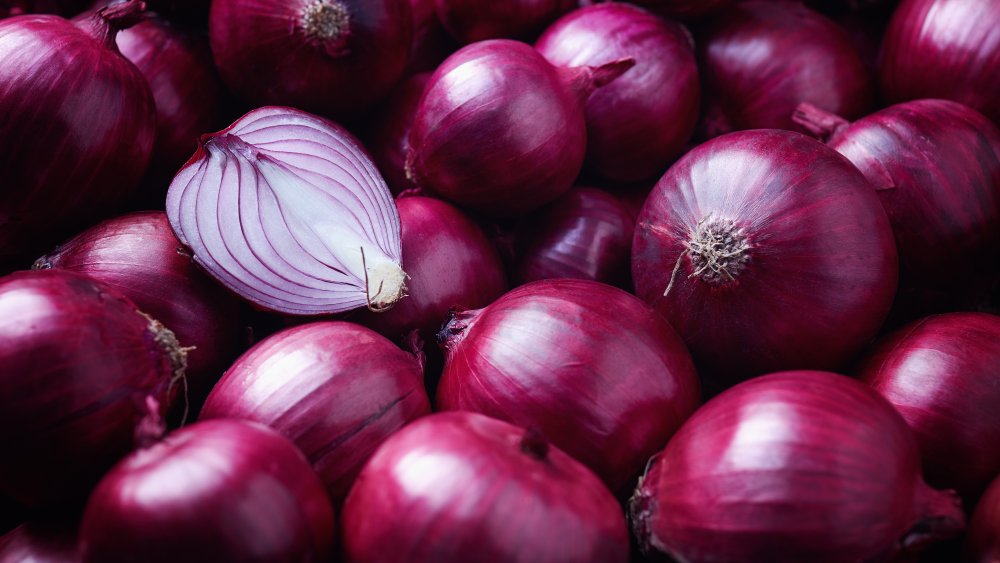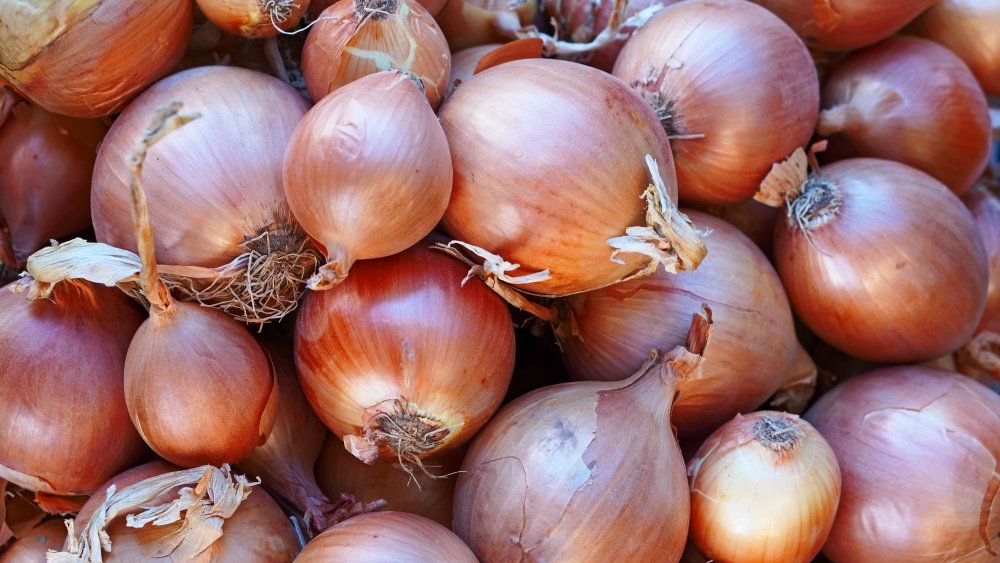The Unexpected Effect Onions Can Have On Your Stomach
Ah, onions. The ubiquitous ingredient that can make many dishes sing. Whether it's soup or curry that you're looking to add some flavor to, it's likely that you can make dishes taste a lot better depending on the type of onion you incorporate. By many accounts, they're good for you, too. According to Live Science, onions have several nutrients that can help you stay healthy. They're good sources of vitamin C, for one, and they are also full of flavonoids that have been associated with lowering risks of developing health complications such as cardiovascular disease, stroke, and Parkinson's.
While these possible benefits may shed a positive light on onions, there are some annoying side effects to keep an eye out for. To state the obvious, onion breath after if you bite into a crunchy salad or dish that contains them can be a pain, as well as the tears that can come from just cutting an onion. But there's more — onions may have unexpected effects on your body that you probably didn't see coming, especially when it comes to your stomach.
How onions can affect your stomach
So, what's the downside of munching on onions? They may leave you feeling bloated. Onions have a type of carbohydrate called fructan that is mostly found in plant foods, which may cause bloating for some people. This is especially prevalent if you have an onion sensitivity, as you may be prone to experiencing symptoms (like bloating) after eating alliums. According to Insider, those who suffer from acid reflux can see their symptoms worsen after eating onions, so you may want to reevaluate your intake if you're noticing significant problems.
The key is to be mindful and figure out whether you have an adverse reaction to onions and experience uncomfortable symptoms after eating them. If you do, you may want to avoid them, which in turn may prevent bloating. While there are several onion substitutes, many of them still contain the vegetable, so it's often best to rely on other veggies like carrots, bell peppers, celery, chives, and scallions to get your fill of flavor and spice.

